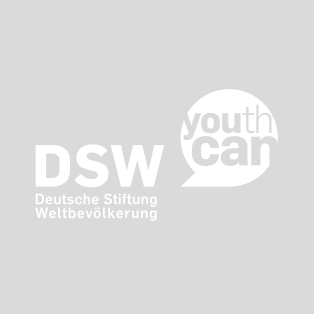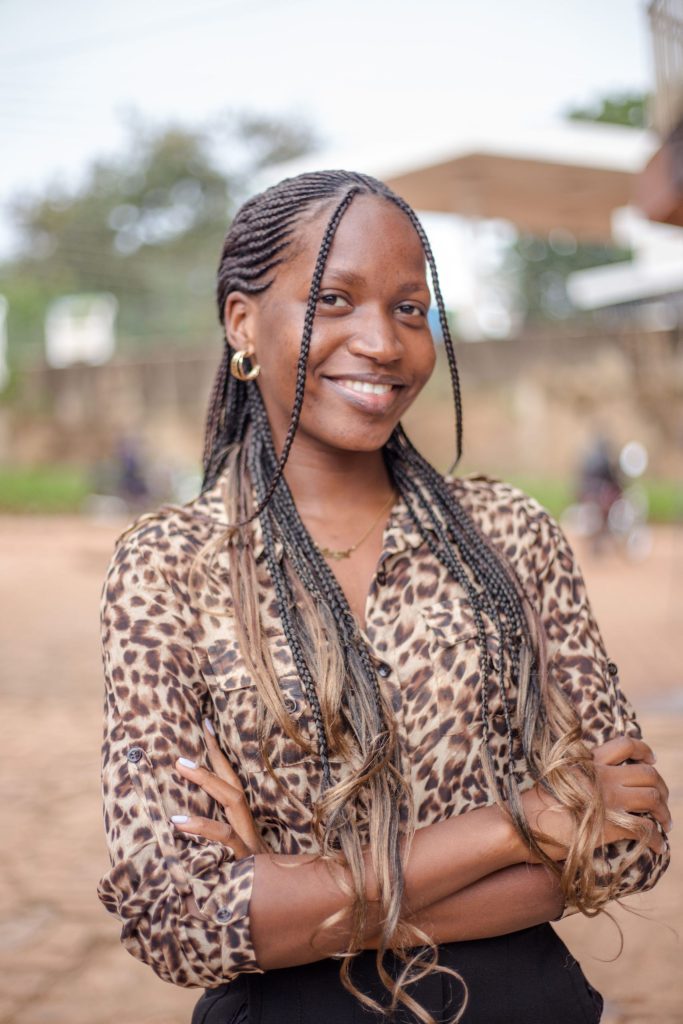Live Blog – Tracking EU investments in human development in 2022
This is a live blog that will be updated at key moments in the 2022 budget process, with the latest additions posted at the top of the page.
25/11/2021 – Brussels
Increase in EU budget for health R&I and global health in 2022
White smoke billows in Brussels as the Parliament and Council reach an agreement on the EU budget for 2022. The budget negotiators also accepted an amending letter tabled by the Commission for the EU Budget for 2021 which recommended mobilising additional 400 million EUR to purchase and donate 200 million COVID-19 vaccine doses to low- and middle-income countries (LMICs). This proposal received a positive but cautionary response from civil society, who recalled that the best option to support COVAX remains cash contributions instead of vaccine donations.
The health cluster of the research and innovation (R&I) framework programme Horizon Europe will increase by 75 million EUR in commitment appropriations, reaching a total of 646.73 million EUR for 2022. This increase seeks to accelerate efforts to tackle the ongoing pandemic, foster Europe’s R&I competitiveness and deliver on the Union’s strategic priorities such as tackling global challenges and delivering on the Sustainable Development Goals (SDGs). Horizon Europe also saw increases in other areas such as digitisation (8 million EUR); energy and climate (9 million EUR) and food (8 million EUR). The budgets of the two health R&I partnerships (‘joint undertakings’), the Innovative Health Initiative and the Global Europe EDCTP3 remain unchanged.

Concerning global health investments under the EU’s international cooperation instrument, the ‘People – Global Challenges’ budget line supports initiatives such as the Access to COVID-19 Tools Accelerator (ACT-A), the UNFPA Supplies, the Global Fund and GAVI the Vaccine Alliance. The EU’s development programme, the Neighbourhood, Development and International Cooperation Instrument (NDICI – Global Europe), requires the EU to ensure that at least 93% of the NDICI expenditure counts as official development assistance (ODA).

The People – Global Challenges budget line has received an increase of 50 million EUR for 2022 which will be dedicated primarily to fighting the pandemic and support global vaccination efforts. Through this budget line, the EU plans to allocate 5 million EUR to support multilateral initiatives targeting children and youth and will also “give a prominent place to [tackling] sexual and gender-based violence […], strengthening the international gender equality acquis and increasing dedicated investments”. While the increase in the People budget line is clearly positive, with an overall budget of only 187 million EUR for 2022, it remains unclear whether the Union will manage to increase or even sustain investments in other key global initiatives on human development which are primarily funded via this budget line, such as the WHO partnership to strengthen health systems for universal health coverage or indeed, additional resources required to fund ACT-A.

24/09/2021 – Brussels
Investing in human development is key to mitigate and revert the effects of the pandemic: we cannot afford to dither and delay
The following article was co-authored by MEPs Charles Goerens and Urmas Paet:
At the beginning of the pandemic, Team Europe committed to deploy an unprecedented global response to deal with the pandemic and its social and economic consequences: almost 40 billion euros of investments to support our partners and allies across the globe. A critical part of this endeavour will happen through multilateral initiatives such as the COVID-19 Vaccines Global Access (COVAX) to which the EU has committed 1 billion euros, although today, less than half of that amount is actually available. In the global response against COVID-19, the EU has shown leadership, solidarity and commitment to honour its values. Now, it needs to show resolve.
In the next months, the Parliament and Council will try to agree the EU budget for 2022. The stakes could not be higher. The same week the EU reached the milestone of fully vaccinating 70% of the adult population, the World Health Organisation warned that Africa was on the brink of missing a key target: vaccinating the most vulnerable 10% of its population before the month end. The lack of COVID-19 vaccines in Africa is just the tip of the iceberg. Worldwide, 2.8 billion people are affected by poverty-related diseases such as HIV and AIDS, tuberculosis, malaria and neglected tropical diseases, costing millions of lives, and ravaging families and communities trapping them in a cycle of poverty and discrimination. More than 30 million African children under five get seriously ill from vaccine-preventable diseases and over half a million die every year. Much progress has happened in the last decades but clearly, there can be no space for complacency. Science and solidarity are helping to address these global health challenges yet, when it comes to infectious diseases, an unfinished business can be catastrophic. We need to do more, and we need to do it now.
As leading negotiators from the European Parliament Committees on Development (DEVE) and Foreign Affairs (AFET) for the 2022 budget, we have asked the Union to fulfil its commitments without further delay. In July, both Committees adopted our joint amendments to scale up investment in human development, in particular in healthcare, nutrition, education, social protection and gender equality. Not only are these areas key to eradicating poverty, tackle discrimination and achieve sustainable development, they have also been impacted directly and disproportionally by the pandemic, which threatens to dissolve decades of socio-economic progress in low and middle-income countries (LMICs). Last year, the United Nations Development Programme warned that the global human development index was on course to decline for the first time in its history unless there was a strong policy response. A few weeks ago, the Global Fund confirmed these predictions with a daunting report on the devastating impact of the pandemic on HIV, tuberculosis and malaria programmes, with prevention and treatment services decreasing and progress against these deadly diseases stalling. The impact of COVID-19 on education and gender equality across the globe is also deeply concerning. We simply cannot ignore these realities. Our proposal is ambitious yet realistic. It respects the budgetary and policy commitments of the new development instrument, Global Europe, and focuses on using the budget line for ’Emerging Challenges and Priorities Cushion‘ instead of increasing overall appropriations or reshuffling funds from other priorities. Our goal is clear: to advance towards a durable and equitable recovery from COVID-19 by increasing and prioritising investments in human development. Pandemics do not wait. Doing too little or too late will mean leaving millions of people behind.
We have complex negotiations ahead. First, we need the support of our colleagues in the Committee on Budget (BUDG). We are confident that the Parliament will rally around our call to step up human development investments in this critical year, and we welcome the fact that members from BUDG have also tabled amendments echoing our call. Moreover, our parliamentary group just tabled an amendment calling to allocate additional 4 billion euros to COVAX in order to accelerate vaccination in LMICs. Second, we need to persuade the Council that their proposed cuts of 500 million euros to the Global Europe instrument would undermine and delay the global recovery from the pandemic. This proposal would undoubtedly have a steep human, social and economic cost. We cannot and should not deceive our partners or ourselves. The pandemic is not over, and its effects will last even longer if we do not act. In these budget negotiations, we call on the Council to match the Parliament’s level of ambition, courage and determination. Now is the time to honour our commitments and our values and put an end to a devastating health crisis by saving lives, building resilience and leaving no one behind.
Charles Goerens and Urmas Paet
15/06/2021 – Brussels
The EU cannot possibly hope to mitigate the impact of COVID-19 with the proposed budget for human development in 2022
On June 8, the European Commission (EC) presented its proposal for the 2022 budget of the EU. The NDICI-Global Europe Instrument – the new development cooperation programme – will allocate 12.5 billion euros in budgetary commitments in 2022. 9.2 billion will be distributed according to geographic criteria and 969 million to selected thematic priorities. Some development NGOs often consider the annual budget unchartered territory for advocacy because the procedure is technocratic and full of legalese, and seemingly irrelevant for development cooperation since funds and priorities are decided in the instrument and the work programmes.
So why should we care about the annual budget?
The EU annual budget provides key information on the progress, velocity, and flexibility in the allocation of EU funds. It is one of the most accurate and useful tools to hold the Union accountable for its commitments. Additionally, the budget tells us the Union’s priorities with a much higher level of granularity than any other document. Only by looking at budget lines and their accompanying remarks, is it possible to know exactly how much money the EU will allocate to a certain area, and which specific objectives will be addressed within it.
Let us take the example of human development. The EU recognises that improving human development is a key way to eradicate poverty and it is committed to allocating at least 20% of its Official Development Assistance to this objective (the “20% benchmark”). However, the EU’s interpretation of human development is ambiguous and often contradictory. Only health, education, social protection and gender equality investments contribute to the 20% benchmark as per the methodology developed by the European Commission. Yet in the annual budget, the Commission often proposes economic activities such as creating decent jobs or developing the private sector as contributing to human development, conflating economic development with human development.
Clearly, human development has lost ground as an EU priority for development cooperation. The EU has fallen behind the 20% benchmark and only managed to revert chronic underinvestment by expanding the number of areas that could be reported as contributing to this indicator. See if you can spot the year when the methodology was changed:

Source: European Commission (2020). 2019 annual report on the implementation of the European Union’s instruments.
COVID-19 set to unravel progress
COVID-19 has demonstrated the dire consequences of this underinvestment and it has also posed an unprecedented shock to human development. Data on the impact of COVID-19 in low and middle-income countries (LMICs) is limited, but preliminary findings and estimations suggest deep negative effects on all dimensions of human development. From the heavy disease burden and high mortality in care workers in LMICs, the majority of which are women[1], to increased violence against women and reduced access to essential healthcare such as family planning services[2] due in part to restrictive measures implemented to curb the spread of the virus.
From a budgetary perspective, COVID-19 looks to have a serious impact on the funding available for human development. Not just because of the economic shock it has produced but also because it has hijacked human development investments. In the budget proposal for 2022, the Commission recognised that ”policy priorities, such as realising the Sustainable Development Goals, will inevitably be tied to the COVID-19 ripple effect throughout the world, especially in the field of human development”. Using human development investments to tackle COVID-19 could drain critical resources from initiatives contributing to tackling violence against women and girls, curb the ongoing epidemics of HIV & AIDS, tuberculosis, and malaria, and address the unmet need for family planning.
The draft budget proposal shows that the main thematic budget line supporting human development, the People – Global Challenges budget line, will allocate 137 million euros in budget commitments in 2022. This is substantially less earmarked investments for human development than those that were annually committed by the EU in the previous budget cycle (2014-2020). For instance, from 2017 to 2019, the EU provided 185 million euros to the Global Fund to fight AIDS, tuberculosis, and malaria through the dedicated budget line for human development[3]. This initiative has contributed to saving 32 million lives since 2002, cutting down mortality from these three diseases by more than 40%.
However, with 137 million euros, the EU cannot possibly hope to address COVID-19 (e.g. supporting vaccination efforts of LMICs) while also sustaining the funding needs of all other human development priorities such as the Global Fund or the EU-WHO partnership to strengthen health systems for universal health coverage. There is even less hope if the paltry resources dedicated to human development are spread thinner due to allocation of funding to activities that do not directly contribute to it (as per the 20% benchmark), such as “migration and forced displacement, decent work […and] culture”, as proposed by the 2022 budget.
A critical time for human development
It is true that human development investments will be mobilised from the geographic budget lines of the NDICI-Global Europe as well, but these have an even broader scope and are determined primarily in the programming rather than the annual budget. Moreover, the Commission has not proposed a clear pathway to mainstream human development investments in geographic budget lines, with the programme statements of the 2022 budget simply indicating that “human development and gender equality and women empowerment” will be one of the priorities, e.g., for African regions. Partnered with the ambiguous application of human development, this lack of detail could be a recipe for disaster. It also means that, ultimately, we will only be able to know how much funding went to human development once the programmes are implemented, i.e. in 2023 or later. This level of uncertainty about the amount of funding that will support human development (e.g. health) interventions while in the middle of a pandemic is highly ill-advised.
Human development is at a critical juncture. COVID-19 has evidenced the need to increase global investments in health and other areas of human development. The time has come for the EU to decide whether it believes in its own commitments or whether will allow the pandemic to unravel decades of progress in health, education, social protection, and gender equality worldwide. On June 18, the Council called upon the EU to take “concrete and measurable commitments” to increase funding for human development and reach at least the 20% benchmark. We hope the Parliament and the Council take the first step in that direction and work hand-in-hand to ensure that the 2022 budget puts human development at the forefront of the EU’s global response to COVID-19.
References
ECDPM (2021). Reinvigorating human development in the EU external action.
[1] Mehta, S. et al. (2021) COVID-19: a heavy toll on health-care. The Lancet. Available at workershttps://www.thelancet.com/journals/lanres/article/PIIS2213-2600(21)00068-0/fulltext; Moitra, M. et al. (2021) Mental Health Consequences for Healthcare Workers during the COVID-19 Pandemic: A Scoping Review to Draw Lessons for LMICs. Front. Psychiatry. Available at https://www.frontiersin.org/articles/10.3389/fpsyt.2021.602614/full
[2] Riley, T. et al (2021) Estimates of the Potential Impact of the COVID-19 Pandemic on Sexual and Reproductive Health In Low- and Middle-Income Countries. Guttmacher Institute. Available at https://www.guttmacher.org/journals/ipsrh/2020/04/
[3] European Commission (2018) Draft General budget of the European Union for the financial year 2019. Programme statements of operational expenditure. Available at https://ec.europa.eu/info/sites/default/files/about_the_european_commission/eu_budget/draft-budget-2019-programme-statements-com-2018-600_2018_en.pdf

